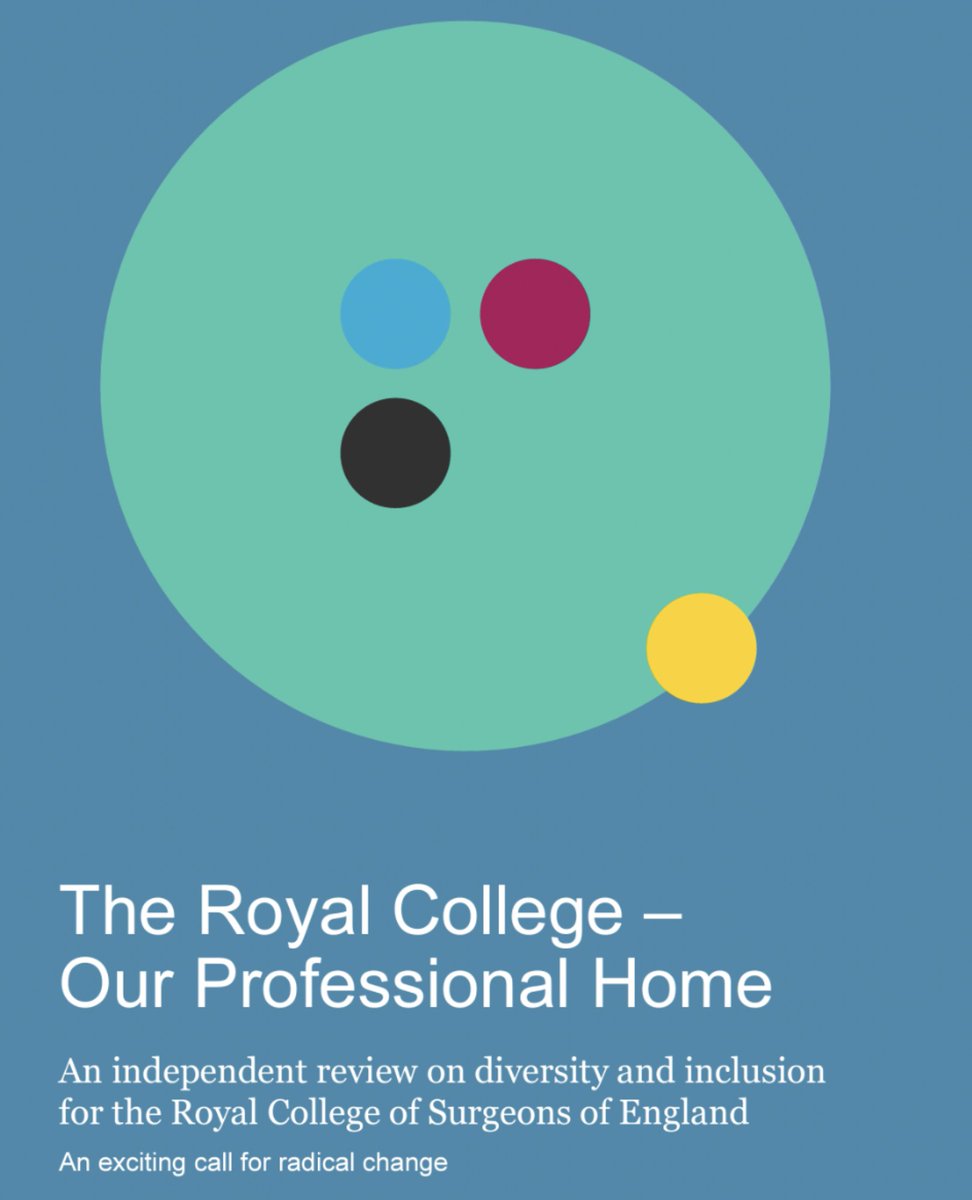Here's your "but surgery doesn't have a problem with diversity any more, right?" starter pack. A thread on what we know, and what we don't.🧵(1/15)
#DiversityMatters #ILookLikeASurgeon
#DiversityMatters #ILookLikeASurgeon
First of all, there aren't enough #womeninsurgery. 13.2% of NHS surgeons are women (ENT surgery = 16.5%). And 35% of surgical trainees are women, compared to 57% of all trainee doctors. (2/15)
#ILookLikeASurgeon
#ILookLikeASurgeon

Why is this? The perception that surgical culture is biased against women (and does not recognise potential needs regarding pregnancy, childcare and family life) has been shown to deter women from applying for surgical training. (3/15)
ncbi.nlm.nih.gov/pmc/articles/P…
#ILookLikeASurgeon
ncbi.nlm.nih.gov/pmc/articles/P…
#ILookLikeASurgeon
If they do enter training, women must transit a "leaky pipe" which fails to retain some female trainees through to CCT. The reasons for this are numerous, but the fault likely lies with the pipe, not the women. (4/15)
…-publications.onlinelibrary.wiley.com/doi/epdf/10.11… via @rosieICM
#ILookLikeASurgeon
…-publications.onlinelibrary.wiley.com/doi/epdf/10.11… via @rosieICM
#ILookLikeASurgeon
We learnt recently that women and people of colour are less likely to progress up the ranks than their white male counterparts. (5/15)
independent.co.uk/news/uk/home-n…
#DiversityMatters #ILookLikeASurgeon
independent.co.uk/news/uk/home-n…
#DiversityMatters #ILookLikeASurgeon
A study published last year found that people of colour are still less likely than their white counterparts to be deemed appointable to surgical training jobs. (6/15)
doi.org/10.1136/bmj.m4…
#DiversityMatters #ILookLikeASurgeon
doi.org/10.1136/bmj.m4…
#DiversityMatters #ILookLikeASurgeon

And once they reach consultant level, there is a pay gap of 5% between white doctors and doctors of colour. Meanwhile, the latter are 22% more likely to be referred for formal disciplinary proceedings. (7/15)
doi.org/10.1308/rcsbul…
#DiversityMatters #ILookLikeASurgeon
doi.org/10.1308/rcsbul…
#DiversityMatters #ILookLikeASurgeon

A @TheBMA report found 45% of disabled doctors and med students were unable to obtain reasonable adjustments, 74% had issues with sick leave, and 77% were worried they'd be treated unfairly if they disclosed their disability. (8/15)
bma.org.uk/advice-and-sup…
#DiversityMatters
bma.org.uk/advice-and-sup…
#DiversityMatters
And a @TheBMA study of lesbian, gay, and bisexual medics found that over 70% "endured one or more types of experience short of harassment or abuse in the last two years" and 12% experienced harassment or abuse. (9/15)
bma.org.uk/advice-and-sup…
#DiversityMatters #ILookLikeASurgeon
bma.org.uk/advice-and-sup…
#DiversityMatters #ILookLikeASurgeon
What about the experiences of surgeons who are trans? Vascular consultant @PhillipaBurns2 recently spoke to @RCSnews The Theatre podcast about her experiences. Otherwise there isn't much data out there on surgeons who are trans (10/15) open.spotify.com/episode/0nduT2…
#ILookLikeASurgeon
#ILookLikeASurgeon
The @rcsnews Diversity Review by @HelenaKennedyQC has revealed significant concerns regarding diversity in surgery. Her report was a catalyst for action by the College and provided detailed recommendations. (11/15)
rcseng.ac.uk/about-the-rcs/…
#DiversityMatters #ILookLikeASurgeon
rcseng.ac.uk/about-the-rcs/…
#DiversityMatters #ILookLikeASurgeon

It also included this suggestion from a "group of female ENT trainees": (12/15)
rcseng.ac.uk/about-the-rcs/…
#ILookLikeASurgeon
rcseng.ac.uk/about-the-rcs/…
#ILookLikeASurgeon

We don't have all the answers, but listening to your less privileged colleagues, speaking up for one another, inspiring your juniors, and offering mentorship and support are good places to start. (13/15) #LiftAsYouClimb
doi.org/10.1308/rcsbul…
doi.org/10.1308/rcsbul…

NB - Some colleagues will be at the intersection of minority categories. For example the term misogynoir, coined by queer Black feminist Moya Bailey, describes the combination of racism and misogyny experienced by Black women. (14/15)
#DiversityMatters #ILookLikeASurgeon
#DiversityMatters #ILookLikeASurgeon
That's it for now, though this is just a starter pack. If there's any research you feel should be highlighted, or issues we've not covered, please post your thoughts in the comments below. (15/15)
#DiversityMatters #ILookLikeASurgeon
#DiversityMatters #ILookLikeASurgeon
• • •
Missing some Tweet in this thread? You can try to
force a refresh








